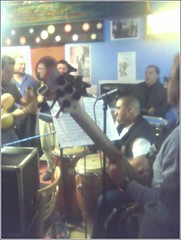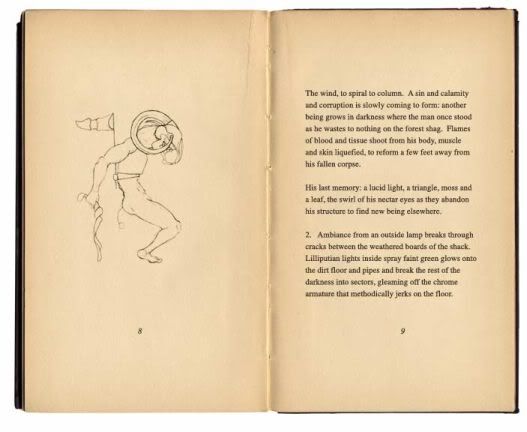The Latin Jungle
La Selva Latinoamericana
In Venezuela it was the writer
Romulo Gallegos who in 1929 penned perhaps one of the first indigenous novels,
Dona Barbara. Here, the natural world arises as a powerful protagonist. The Latin American novel seems to first take form as a drama in which the European man is soaked in the wild, savage psychology of the native world.
A better novel still is Gallegos'
Canaima in which the landscape itself defines the course of the novel. Canaima is about one man's futile struggle against the forces of nature, and by implication - destiny. I wanted to quote from Canaima but after looking around for days, even through old boxes of books, I am giving up. The climactic chapter has the protagonist caught in the jungle far from home as a violent storm approaches. He decides to tear his clothes off to confront the storm head on, hugs the largest nearby tree and confronts the elements - wind, rain, lightning, earth - one by one as a series of heroic trials.
Miguel Angel Asturias Men of Maize, however, was the first to combine the European form with the magical, dream-like narratives of native folktales to create what is known today as 'magical realism' (Asturias even won the Nobel prize and yet is still fairly unknown) Men of Maize is so deeply imbedded in Native culture it is an adaptation of the Maya's
Popol Vuh. It is difficult to read if you do not know what it references. But it is beautiful, hallucinatory writing with the rhythm and unexpectedness of a large prose poem. A sample:
The word of the earth turned to flame by the sun almost set fire to the maize-leaf ears of the yellow rabbits...but Gaspar was once again becoming earth that falls from where the earth falls, which is to say, sleep that finds no shade in which to dream in the soil of Ilom, and the solar flame of the voice could do nothing, tricked by the yellow rabbits that set to suckling in a papaya grove, turned into forest papayas, that planted themselves in the sky, turned to stars, and faded into the water like reflections with ears.
Asturias' contemporary is the much more readable
Alejo Carpentier. His book
The Lost Steps is in many ways a very modern piece of fiction which reads like an adventure story. An ethno-musicologist from New York City flees into the jungle in search of ancient music. But the jungle, of course, not only transforms him but also twists the storyline, imposing its own ancient sense of time and narrative as the protagonist wanders farther and farther away from his modern reality.
The Lost steps is one of those books which I at first read quickly, only to realize later how much I had missed.
The last pearl in this string is Alvaro Mutis'
The Adventures and Misadventures of Maqroll. Garcia Marquez admires Mutis fiercely. Mutis is Joseph Conrad mixed with Garcia Marquez yet, like any original writer, comparisons are unfair. Maqroll is the individual, the thinking man who, forged from the jungle, can now embody it and make it his own. Maqroll is a fearless voyager, a philosopher with odd observations and aphorisms, an observer unbound by his environment. He has no home but the world is his home. Mutis' writing is so immediate, so real, that I want to re-read it even as I am reading it.
A caravan doesnt symbolize or represent anything. Our mistake is to think that its going somewhere, leaving somewhere. The caravan exhausts its meaning by merely moving from place to place. The animals in the caravan know this, but the camel drivers don't. It will always be this way.
And,
A woman's body under the rush of a mountain waterfall, her brief cries of surprise and joy, the movement of her limbs in the rapid foam that carries red coffee berries, sugarcane pulp, insects struggling to escape the current: this is the exemplary happiness that surely never comes again.
Both from Mutis'
The Snow of the Admiral

























